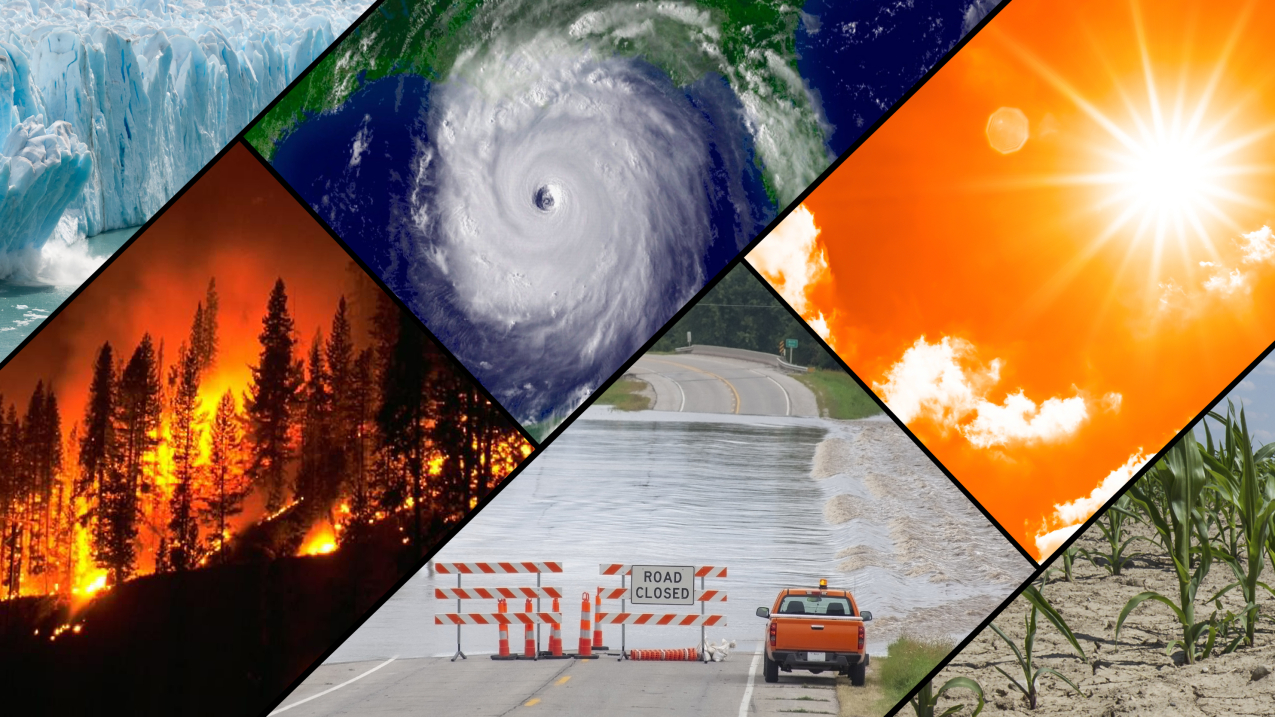 |
Global climate change, also known as global warming, refers to the long-term increase in the Earth's average surface temperature due to human activities such as burning fossil fuels and deforestation. The Intergovernmental Panel on Climate Change (IPCC), a United Nations body composed of thousands of scientists, has warned that human activities are causing global temperatures to rise at an unprecedented rate, with serious consequences for the planet and its inhabitants. Effects of Climate Change: Rising temperatures: Global temperatures have already risen by around 1 degree Celsius since pre-industrial times, and they are projected to continue rising at an alarming rate. This can lead to heat waves, droughts, and wildfires, which can have devastating effects on ecosystems and human health. Melting ice: As temperatures rise, ice in the Arctic and Antarctic is melting at an accelerated rate, leading to rising sea levels. This can cause flooding in coastal areas, displacement of people, and loss of habitats for animals. Changes in precipitation patterns: Climate change is leading to changes in precipitation patterns, including more intense and frequent rainstorms and longer periods of drought. This can lead to flooding and landslides, as well as water shortages and crop failures. Ocean acidification: As the Earth's atmosphere absorbs more carbon dioxide, the ocean absorbs some of that carbon dioxide, leading to ocean acidification. This can harm marine ecosystems and the organisms that depend on them, including fish and coral reefs. Biodiversity loss: Climate change can lead to the loss of plant and animal species, as habitats change and become less suitable for some species. This can have cascading effects on ecosystems, including food chains and nutrient cycling. Steps to Mitigate Climate Change: Reduce greenhouse gas emissions: The most important step in mitigating climate change is to reduce greenhouse gas emissions, primarily by transitioning to renewable energy sources such as wind, solar, and geothermal power. Increase energy efficiency: Improving energy efficiency in buildings, vehicles, and industrial processes can help reduce greenhouse gas emissions and save money. Protect and restore forests: Forests play a critical role in absorbing carbon dioxide from the atmosphere, so protecting and restoring them can help mitigate climate change. Reduce food waste: Food waste is a major contributor to greenhouse gas emissions, so reducing it can have a significant impact on mitigating climate change. Invest in research and development: Developing new technologies and approaches to reducing greenhouse gas emissions is critical to mitigating climate change in the long term. In conclusion, global climate change is a complex and multifaceted problem that requires urgent action to mitigate its effects. Governments, businesses, and individuals all have a role to play in reducing greenhouse gas emissions and protecting the planet for future generations. By taking action now, we can help ensure a sustainable future for ourselves and the planet.
Comments
Post a Comment